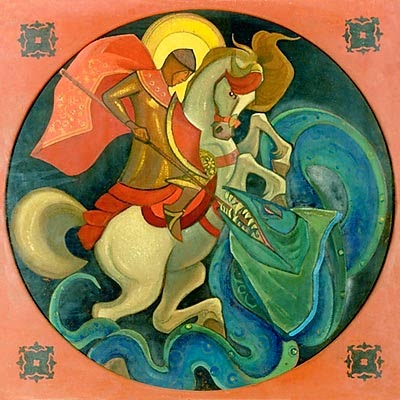 |
| The Blind Man Albert Bloch (1943) |
The Gospel
for this Sunday is a miracle story that turns into a perplexing parable. A man
who is literally blind is given sight for the first time in his life. The Pharisees,
who are highly suspicious of Jesus, look for ways to discredit this miraculous
deed, and at the same time dispel any idea that he might be the Messiah. They
first doubt if the man was really blind, and then try to get him to admit that
since Jesus committed a sin by healing on the Sabbath, his miracle cure is no
reason to put Jesus on a religious pedestal. The man makes a memorable response
"I do not know whether he is a sinner. One thing I do know, though I was
blind, now I see."
When
finally the Pharisees engage with Jesus himself, it appears that the whole
episode is not primarily a healing miracle at all, but a parable in action, one
about spiritual sight and spiritual blindness. Puzzlingly, Jesus says that
those who are blind will be able to see, and that those who can see will prove
blind. How are we to understand this? An important clue comes right at the
start of the passage. The blind man is not blind because he is a sinner. Though
it looks like a curse, his blindness is in reality a very special attribute,
since through it Jesus will reveal the works of God. What is revealed is that
Jesus is the one true light. That is to say, it is by close attention to the
works and words of Jesus, not by scrupulous attention to religious regulations,
that we can discern God’s will for us. By refusing to acknowledge this, the
sighted Pharisees show themselves to be purblind. By acknowledging it, the
blind man shows himself to have insight.
 |
| Light Conquers Darkness Nicholas Roerich (1933) |
True
sightedness about ourselves, the lives we lead, and the world we live in
requires light by which to see. Sinfulness flees from the light because it
prefers that the truth should remain hidden. The short Epistle reflects this
dichotomy and turns it into a choice with which we are confronted. “Christ will
shine on you” it roundly declares. For those who want the truth, these words
represent a liberating promise. For those engaged in “works of darkness”, these
very same words constitute a threat. The choice is clear, and real. We can
continue to act according to our own light, and inevitably stumble around in
darkness. Or we can subject ourselves to the light of Christ, and gladly
embrace the truth that it reveals, however painful or uncomfortable that might
be.
No comments:
Post a Comment